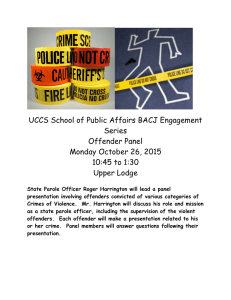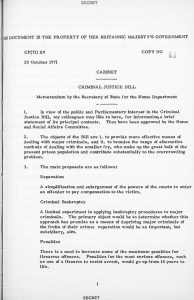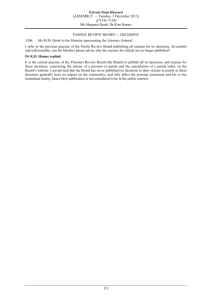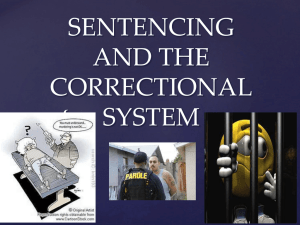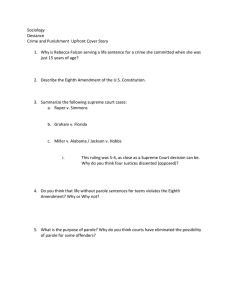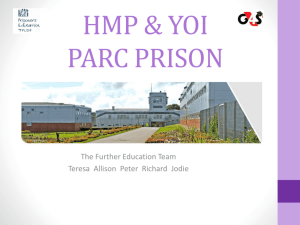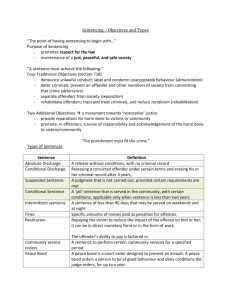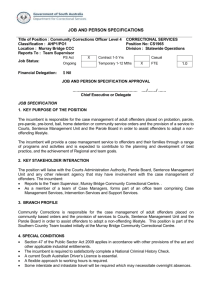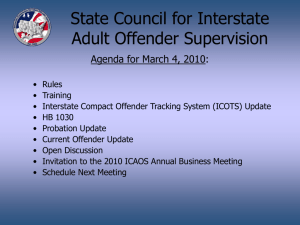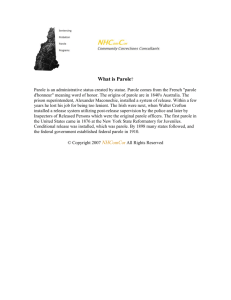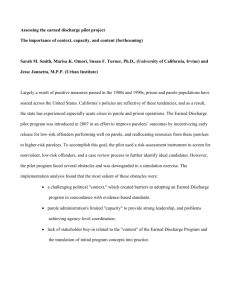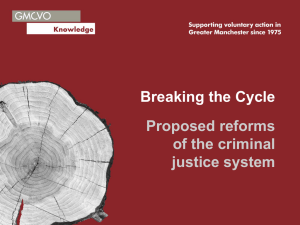Family-letter-1 - Fair Sentencing for Youth
advertisement
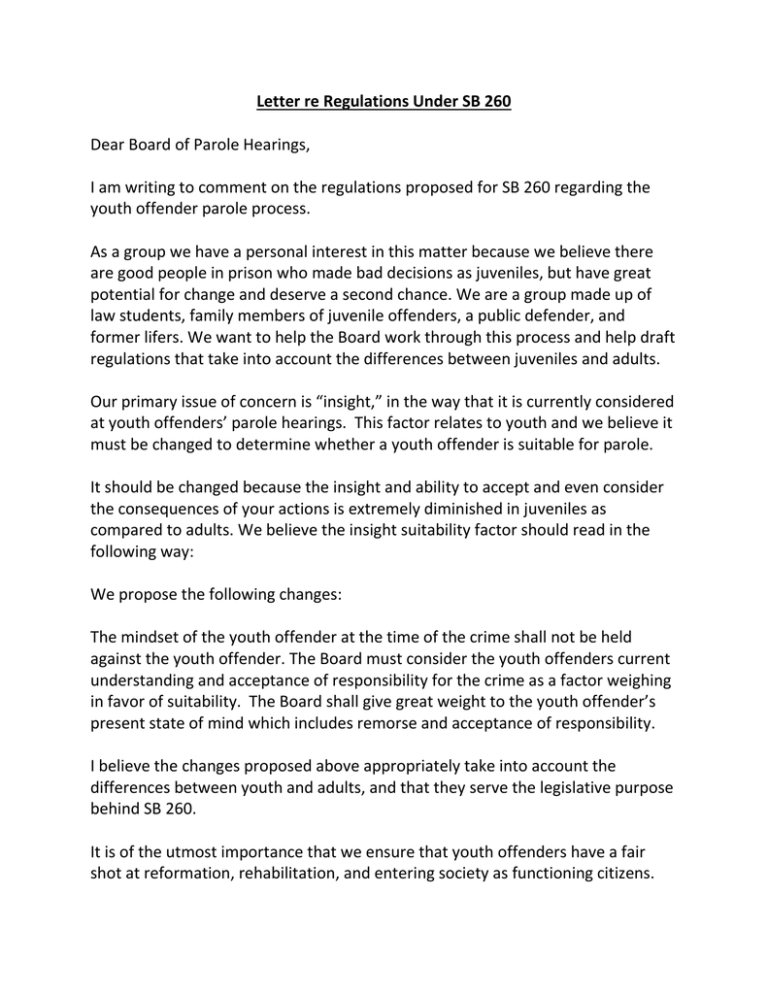
Letter re Regulations Under SB 260 Dear Board of Parole Hearings, I am writing to comment on the regulations proposed for SB 260 regarding the youth offender parole process. As a group we have a personal interest in this matter because we believe there are good people in prison who made bad decisions as juveniles, but have great potential for change and deserve a second chance. We are a group made up of law students, family members of juvenile offenders, a public defender, and former lifers. We want to help the Board work through this process and help draft regulations that take into account the differences between juveniles and adults. Our primary issue of concern is “insight,” in the way that it is currently considered at youth offenders’ parole hearings. This factor relates to youth and we believe it must be changed to determine whether a youth offender is suitable for parole. It should be changed because the insight and ability to accept and even consider the consequences of your actions is extremely diminished in juveniles as compared to adults. We believe the insight suitability factor should read in the following way: We propose the following changes: The mindset of the youth offender at the time of the crime shall not be held against the youth offender. The Board must consider the youth offenders current understanding and acceptance of responsibility for the crime as a factor weighing in favor of suitability. The Board shall give great weight to the youth offender’s present state of mind which includes remorse and acceptance of responsibility. I believe the changes proposed above appropriately take into account the differences between youth and adults, and that they serve the legislative purpose behind SB 260. It is of the utmost importance that we ensure that youth offenders have a fair shot at reformation, rehabilitation, and entering society as functioning citizens. Everyone has a stake in the success of this parole process, and the parole suitability guidelines that you are creating will directly influence the lives of these individuals who may have taken a wrong turn in life but are truly capable of responsibly reentering and serving our communities. Sincerely,
